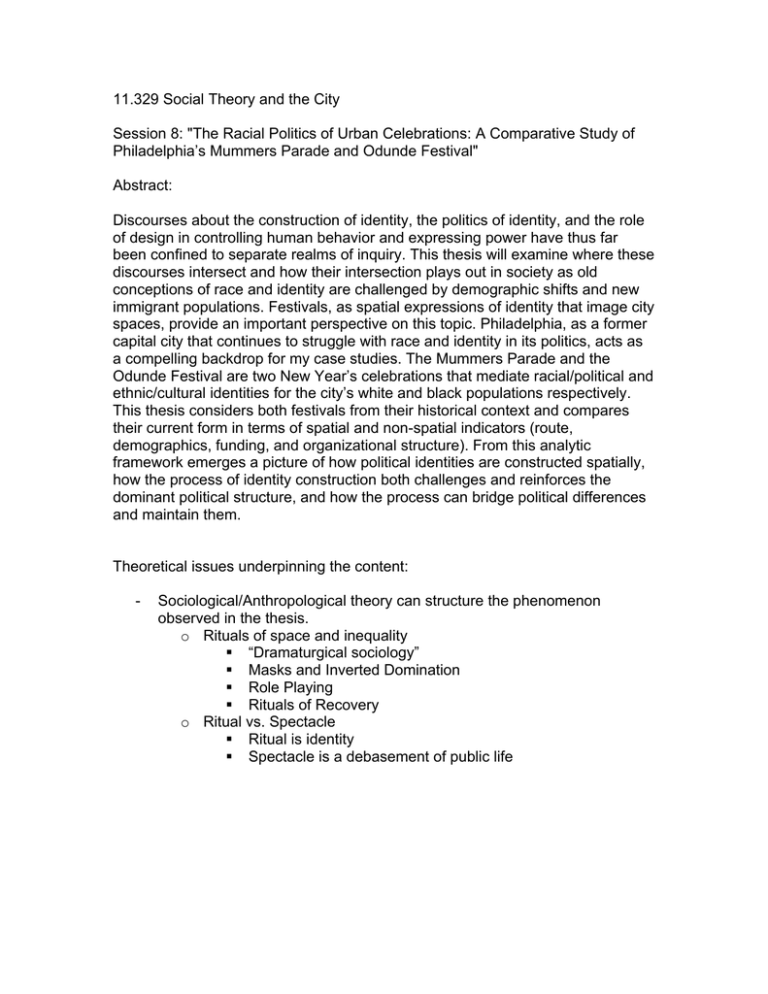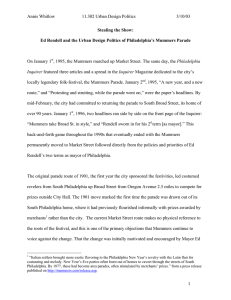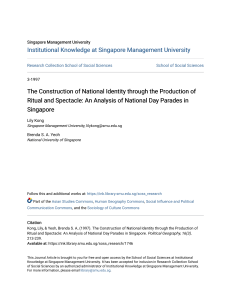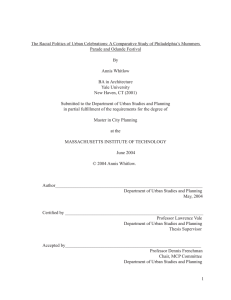11.329 Social Theory and the City
advertisement

11.329 Social Theory and the City Session 8: "The Racial Politics of Urban Celebrations: A Comparative Study of Philadelphia’s Mummers Parade and Odunde Festival" Abstract: Discourses about the construction of identity, the politics of identity, and the role of design in controlling human behavior and expressing power have thus far been confined to separate realms of inquiry. This thesis will examine where these discourses intersect and how their intersection plays out in society as old conceptions of race and identity are challenged by demographic shifts and new immigrant populations. Festivals, as spatial expressions of identity that image city spaces, provide an important perspective on this topic. Philadelphia, as a former capital city that continues to struggle with race and identity in its politics, acts as a compelling backdrop for my case studies. The Mummers Parade and the Odunde Festival are two New Year’s celebrations that mediate racial/political and ethnic/cultural identities for the city’s white and black populations respectively. This thesis considers both festivals from their historical context and compares their current form in terms of spatial and non-spatial indicators (route, demographics, funding, and organizational structure). From this analytic framework emerges a picture of how political identities are constructed spatially, how the process of identity construction both challenges and reinforces the dominant political structure, and how the process can bridge political differences and maintain them. Theoretical issues underpinning the content: - Sociological/Anthropological theory can structure the phenomenon observed in the thesis. o Rituals of space and inequality “Dramaturgical sociology” Masks and Inverted Domination Role Playing Rituals of Recovery o Ritual vs. Spectacle Ritual is identity Spectacle is a debasement of public life



